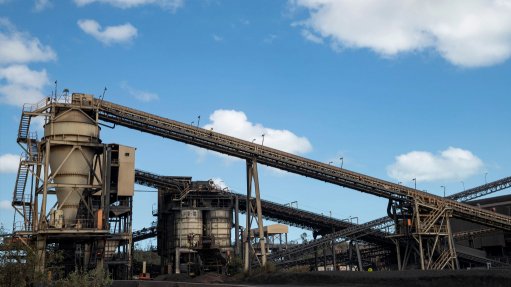
Supply constraints and elevated prices will continue until Gemco (pictured) is brought back on line.
Manganese, an essential steel-making ingredient, has outstripped copper, gold and many other commodities this year after a cyclone halted exports from the world’s second-largest mine in March.
Prices of 44% grade manganese ore have almost doubled since the start of the year, beating gains of 15% in copper, 12% in gold and almost 30% in tin.
A cyclone hammered into the Groote Eylandt Mining Co. (Gemco) operation in northern Australia, damaging key port and haulage infrastructure and halting high-grade exports. Shipments are likely to remain suspended until 2025. South32 owns 60% of Gemco and Anglo American has 40%.
While relatively little known, manganese is important in steelmaking to strengthen the metal and reduce its brittleness. Manganese is also used in batteries and in making aluminum alloys.
The surge in manganese prices was delayed due to stockpiles elsewhere that provided a buffer, according to Benchmark Mineral Intelligence analyst Zach Parsons. The supply shock impacted ore prices in April and took a while to work its way through other manganese products, he said.
Supply constraints and elevated prices would continue until Gemco is brought back online, Parsons said.
The high prices have prompted pure play manganese miners to sell lower grade material. ASX-listed Element 25 told shareholders this week that ore production at these prices “presents an opportunity to generate short-term cash flow.” The producer may sell stockpiles of lower grade manganese from its Butcherbird project, which is profitable in the current market.
Other companies may fast track projects in the development stage. “Miners who were already planning to commence operation might move their timetable up to take advantage of higher prices this year, but this is a small number of producers that would be insufficient to bridge the supply gap,” Parsons said.